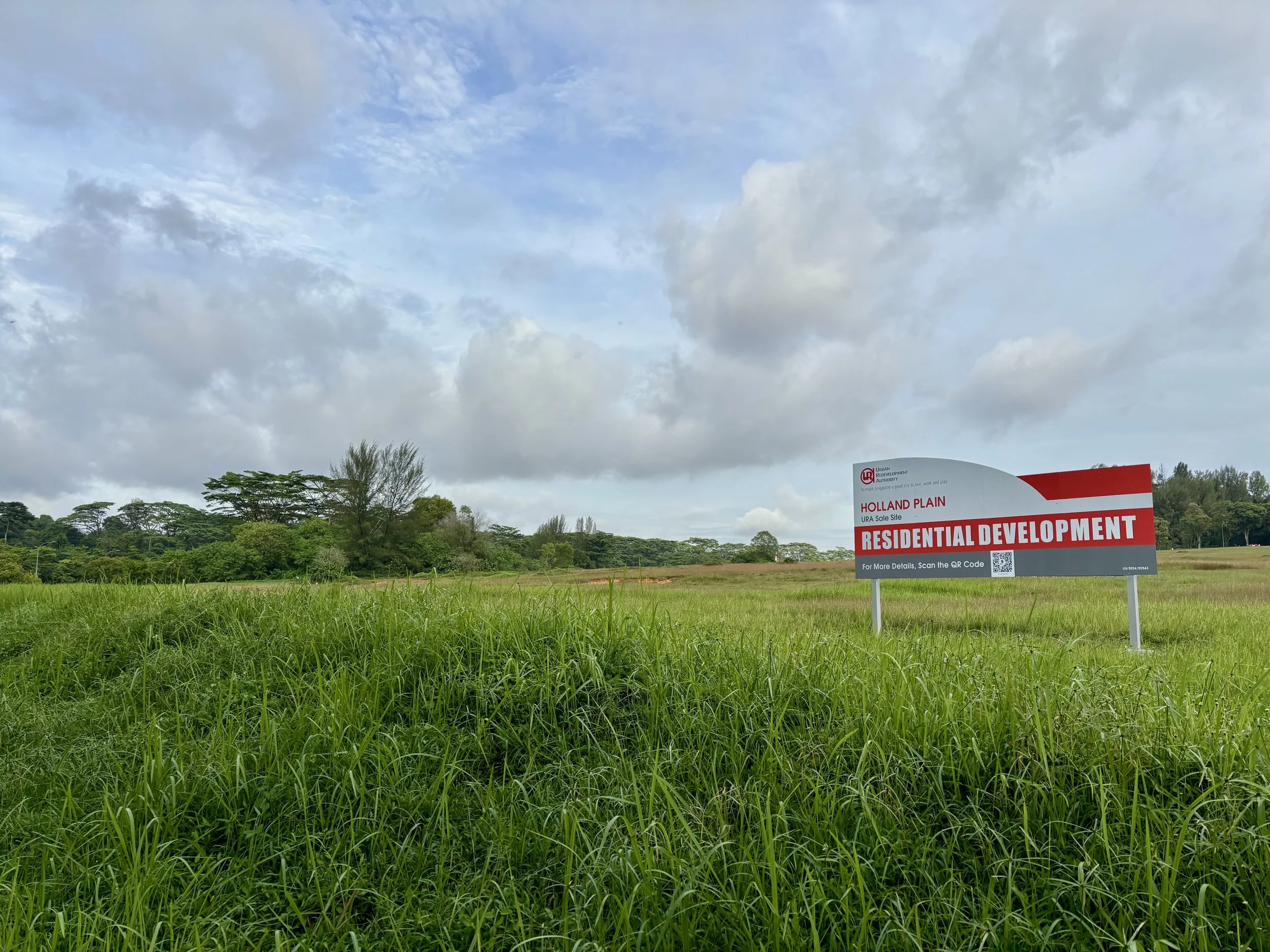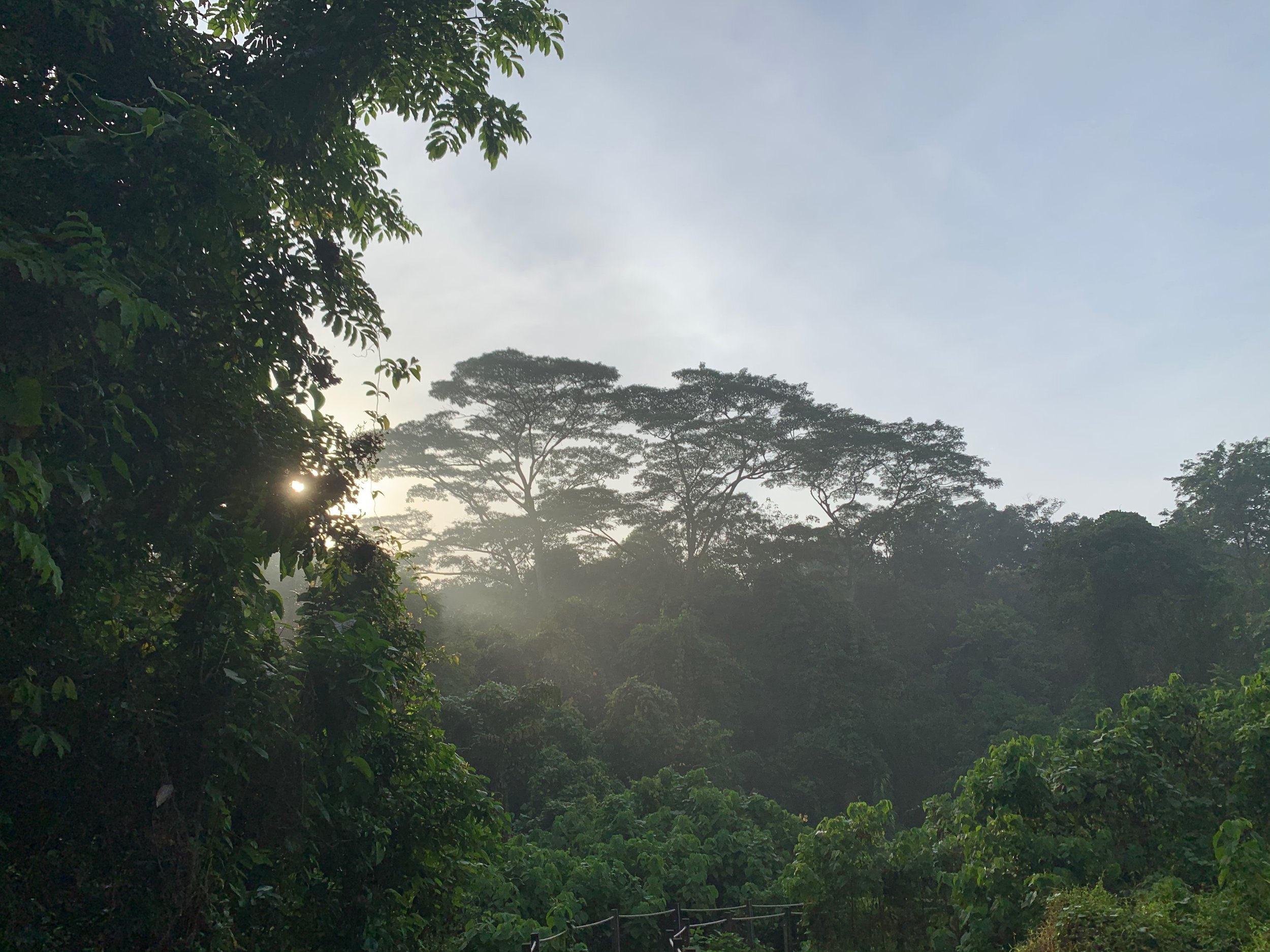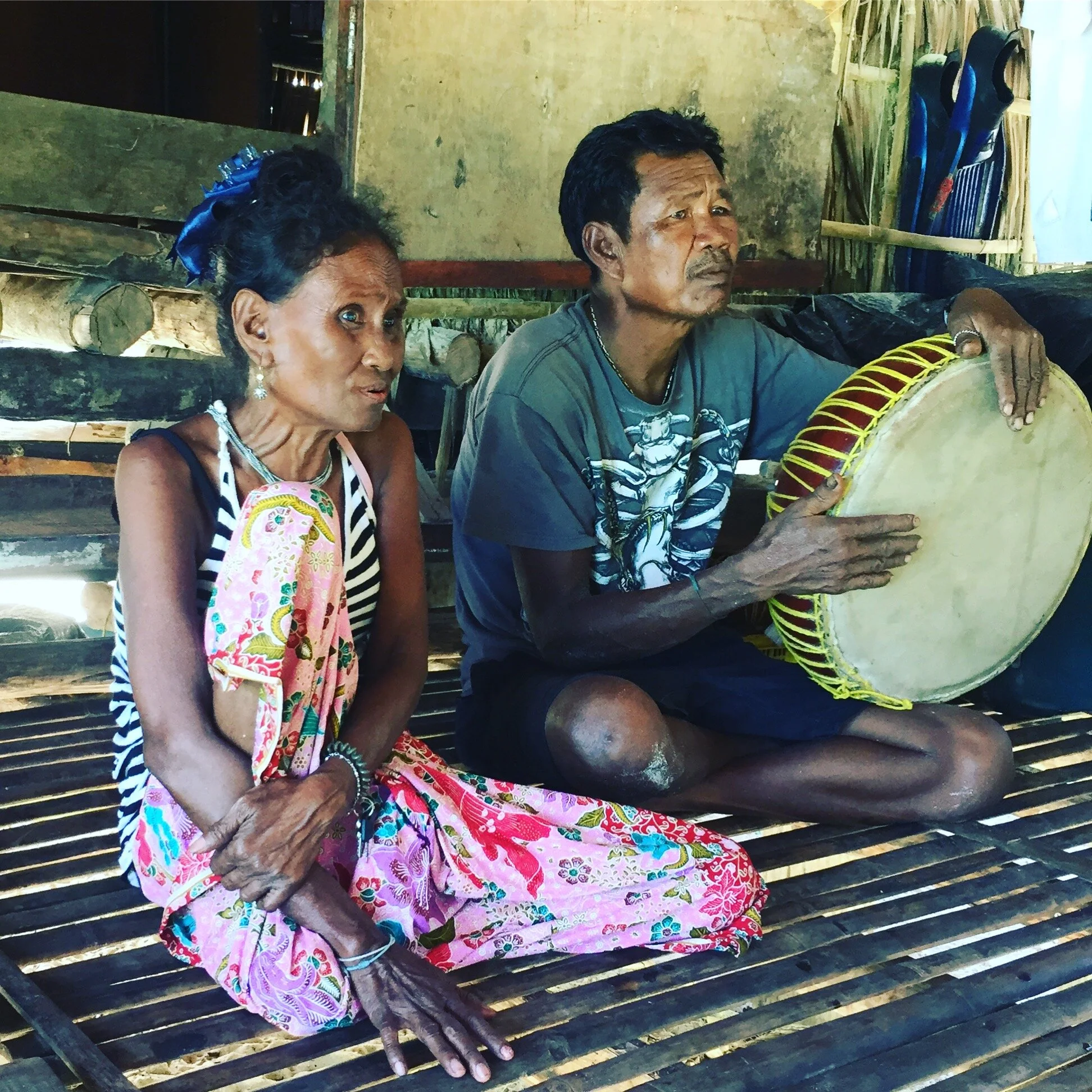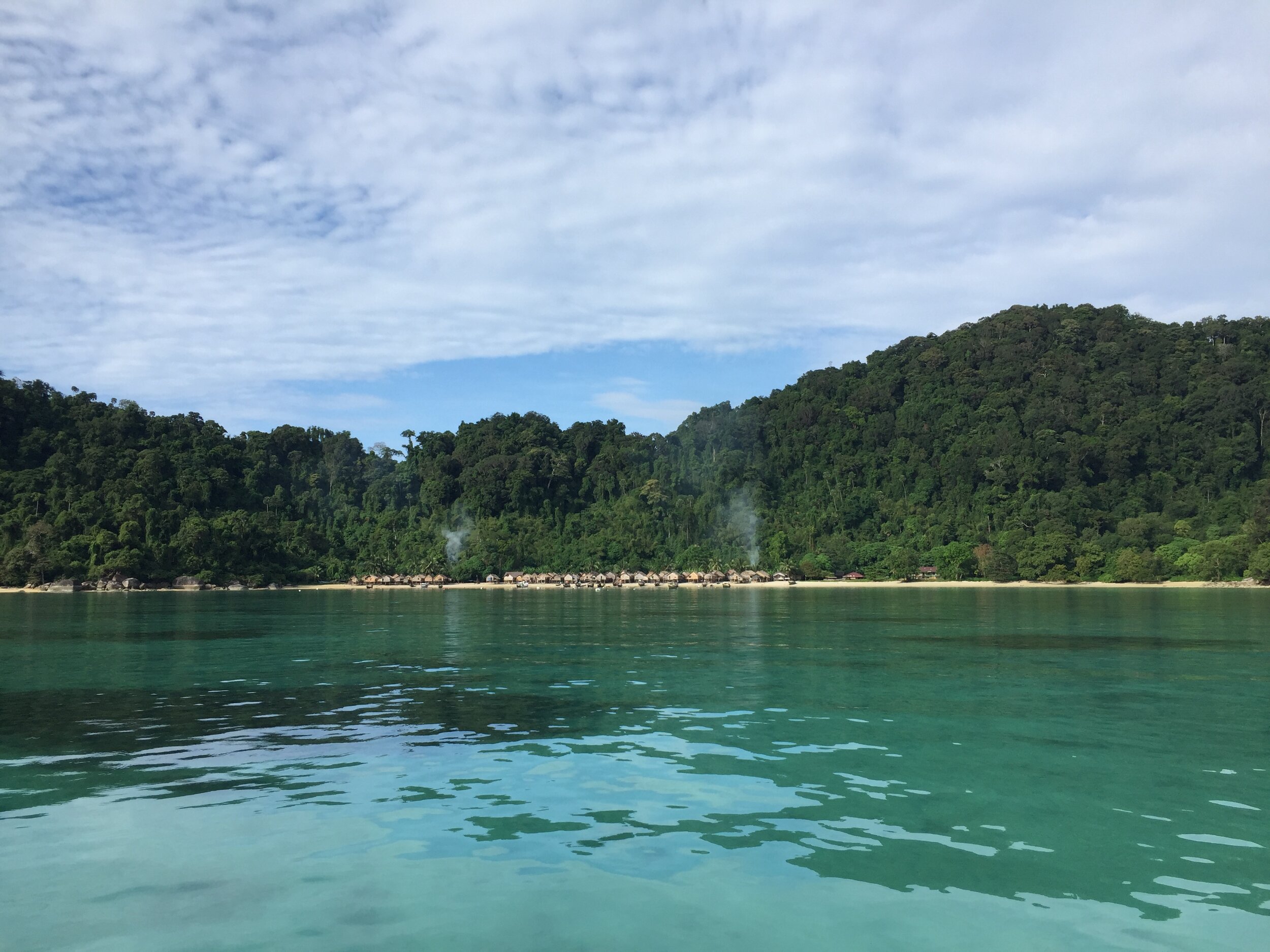This video was shot back in 2017 and features, who is one of the last Moken to still perform these traditional songs.
With her haunting, wavering voice, the video features Sabai, a member of the Moken community. This indigenous, formerly nomadic, group used to spend their lives drifting between the Andaman Sea’s multitude of islands on board their Kabangs or houseboats. These days the pressures of modern life and tightening of international borders, mean the group are now forced to live on land, in Sabai’s case in the Moken village of Ao Bon Yai, located on the beautiful island of Surin, around 60km off the coast of Phuket.
In the video she is seen singing a traditional song about her former life on the ocean and the strong familial bonds between the Moken people. In Moken culture each song is created by the singer and has a special meaning and significance to that particular singer. As Sabai put it to me through our translator: “No one taught me how to sing it just comes from my heart.”
Accompanied by her husband Tat on the Ba Nang, a form of wooden drum, she often performs these ballads for visitors like myself on a Moken Experience tour and at the village’s Labong ritual, the Moken’s most important annual ceremony.
The 60-something Sabai has 11 children, and is one of the last generation to have lived the traditional life on the Kabang but has been a resident in the village since the 2004 Tsunami. Yet a lack of interest from the next generation, means she was also the last person in the village who still remembered and performed these old songs. “When I sing I feel sad, as it brings back memories of old my old life,” she reaclled.
Sabai is one of the last Moken who lived the traditional life on the houseboats
As is the case with many indigenous communities, it looked likely that this cultural practice and the traditions around were in very real danger of disappearing completely with her passing. That knowledge made the experience of listening to her sing, while sat cross legged in her bamboo and pandanus leaf beachfront home, incredibly poignant and emotional, and something I felt compelled to record for some kind of posterity, resulting in this video.
I was lucky enough to visit back in 2017 to learn about the community and to find out more about a tourist initiative that allowed visitors to spend a few days learning about the culture and tradition of these marginalised people who have seen their way of life all but disappear in the last few decades.
You can read more about that experience in this story I put together for Silkwinds alongside the stunning images of Scott A Woodward and with the amazing assistance of Lindsey Reding and the rest of the team at the community-based tour operator Andaman Discoveries.
The whole trip was a truly special experience. Two nights spent pretty much off grid, sleeping in tents on a beach on a remote tropical island with days spent sailing, wading and snorkeling in the brilliant blue waters of the Andaman or hanging out and shooting the breeze with the shy but welcoming Moken. From learning how to throw a harpoon to weave baskets to listening to tales of their beliefs and customs, it was a really eye opening experience and an absolute dream for the eager and inquisitive 18 year old me who decided that anthropology was the only subject worth studying at university – I still believe that to be true!
So, why has it taken me three years to do something with this video? Well it was mostly because I didn’t really know what to do with it or where I should put it. Still, I never forgot that I had it, I knew it was very special, but I always felt that just sticking it up on Facebook or Instagram without any back story seemed something a waste.
Now a combination of some time, creative energy and a website of my own, plus the inspiration of a post by the UN celebrating International Day of the World's Indigenous Peoples (yes it did take me a week to write this) convinced me to finally put it up.
Before I uploaded this post I did also reach out to Lindsey and the Andaman Discovery team to see what has happened to the organisation, the community and Sabai in the three years since we visited.
The good news is that Sabai is still healthy and still singing for visitors to the village but the reality is it has been a tough year for the Moken and for Andaman Discoveries.
The current pandemic and the border restrictions in Thailand forced the tour company to temporarily close its doors for six months, though they remain hopeful that they will be able to open in November and have some guests throughout the high season.
Lindsey did also confirm that they are still working with Moken through the tourism program and also manage to support them in other areas with money from the North Andaman Network Foundation. That included buying one large bag of rice for each Moken household before the onset of rainy season in 2020. Still as Lindsey points out a lot of the foundation funds come from the work of the tour company so the charitable giving projects will suffer as well. Do go to the website to see how you can support them.
Thailand has been better/luckier than most in dealing with Covid and travel is relatively open for those living there, however in line with the rest of the region it does seem unlikely that their borders are going to be open to tourists any time soon – some predictions state it could remain that way until Chinese New Year 2021. If you’re living there then I can definitely recommend a trip with Andaman Discovery. They are genuine and do a lot of good work with the different communities in this beautiful part of the world.
How the pandemic has affected the Moken is still unclear. If you’ve read the Silkwinds story you will know that the community is now deeply affected by and intertwined with the tourist trade, thanks to the revenue generated selling trinkets to the boatloads of tourists who visited Surin Island on snorkel trips. The Surin Islands will reopen in October 15th, but clearly there are not going to be the tourist numbers visiting as in previous high seasons. “They could be facing a very difficult year,” states Lindsey. “They may not be having a lot of work on Surin due to low tourism numbers coming in.”
This isn’t the only hardship to befall the village, which saw all 60+ houses completely destroyed by a fire back at the start of last year. With help from donor organisations and NGOs they were able to recover from that calamity, rebuilding the village in just a few months.
That resilience shows the spirit and sense of community that were a palpable sign of hope I experienced during my own visit. I can only hope that it’s helping them as they face up to these current challenges.
Find out more about news and information about the Moken at:
https://www.andamannetwork.org/ and https://www.mokenislands.com/

![Going [Re]Wild in the Country](https://images.squarespace-cdn.com/content/v1/5ef1747c22bd975f44d7ef9f/1726488503559-D43NPGFYNPJIYMI7QMIV/IMG_6237.jpg)








